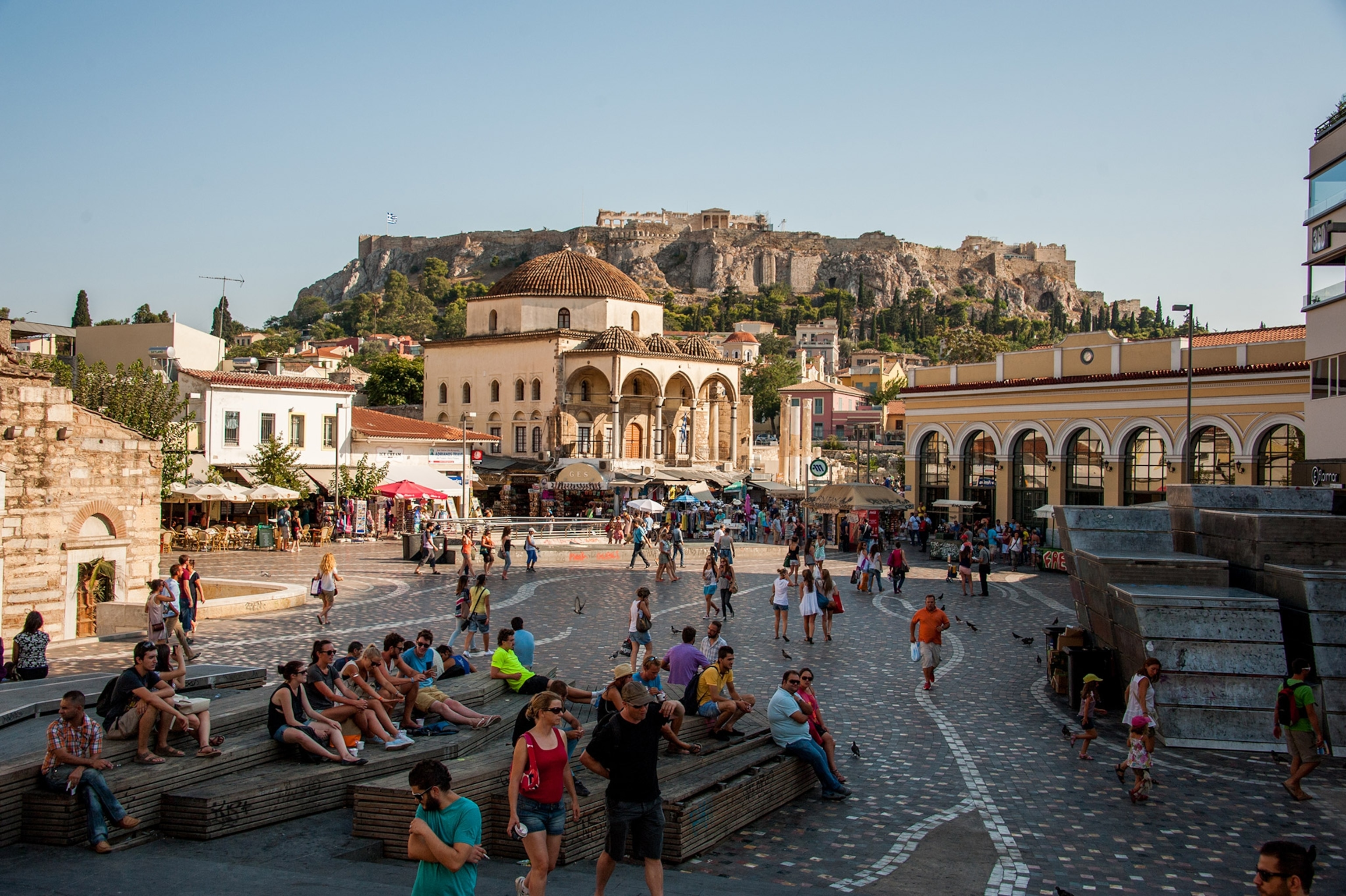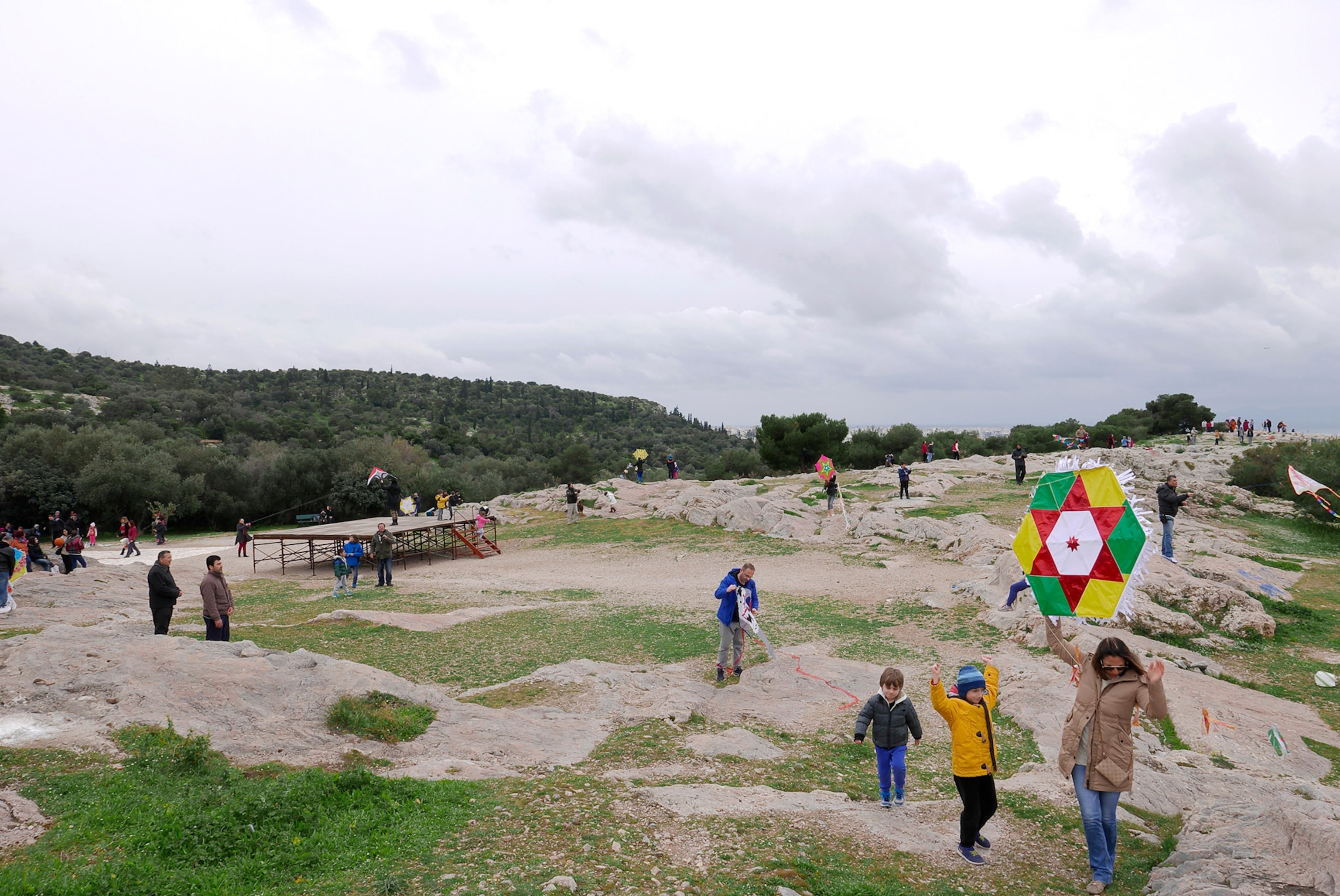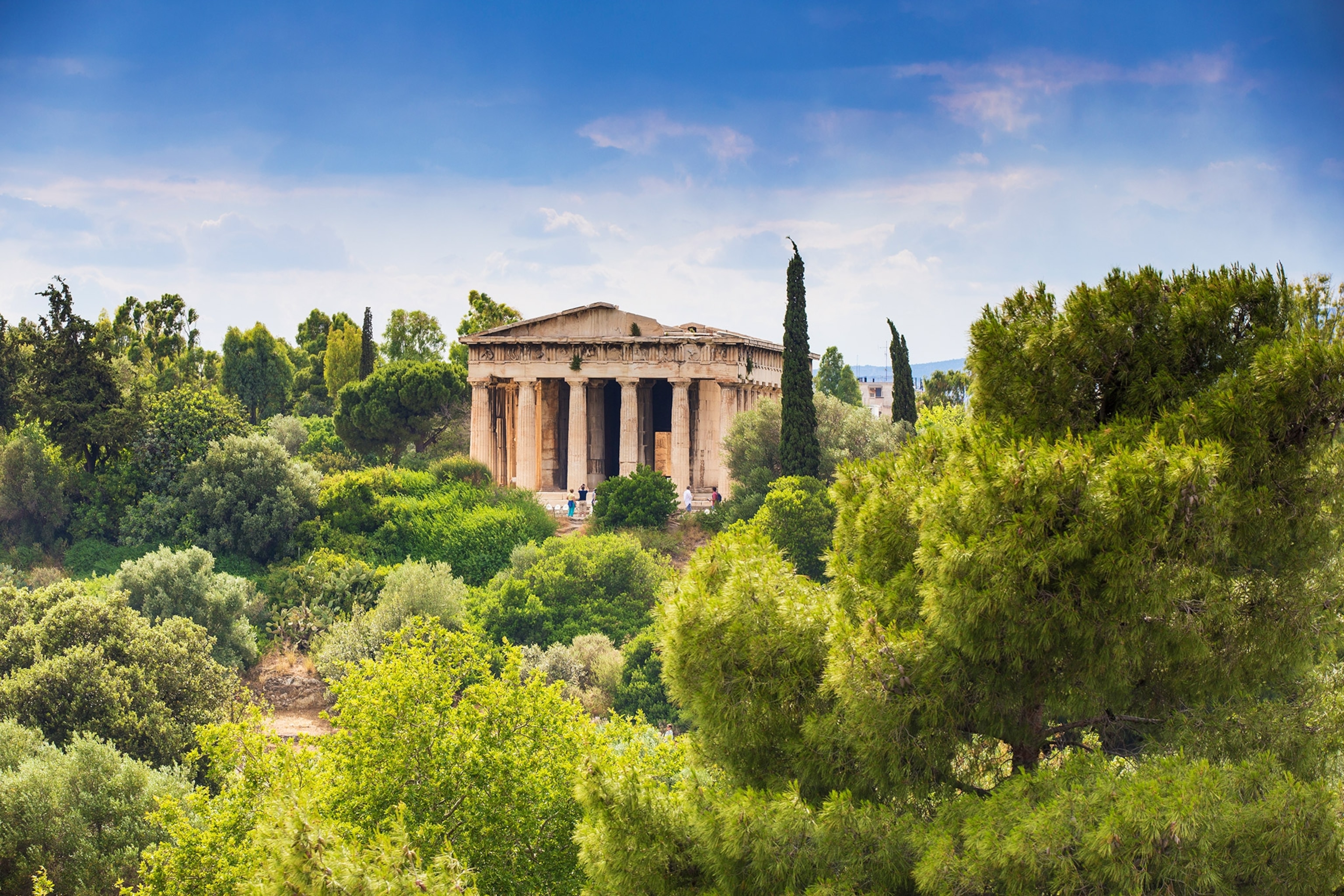
See Athens like a Nat Geo Explorer
From ancient architectural wonders to traditional Greek dishes, this city is at a crossroads of cultures.
The lively metropolis of Athens, Greece, is at the crossroads of cultures from the Middle East, North Africa, and Europe. Its place in ancient history and relatively inexpensive prices draw visitors from all over the world.
My work
I’m fascinated by how animals make collective decisions and maintain cohesion in groups. I studied in Greece and aim to understand how environmental changes can influence collective action. Thanks to funding from National Geographic, I’ve been traveling to the heart of the Kenyan savanna, where I’m researching a unique and previously unstudied bird species: the vulturine guinea fowl. I combine satellite-based technologies with traditional observations to shed light on the origins of animal societies.
Travel for good
Traveling in Athens can be a great chance to support collectives that realize impactful work under minimum funding. Consider contributing to ANIMA, an association that provides first aid and nursing to injured wildlife.
What's in my bag
As a budding ornithologist and explorer, I can’t travel without binoculars and comfortable shoes. Binoculars give you another perspective of the world around you and good walking shoes help you explore. Using a wheelchair in Athens can be challenging. I recommend visiting this website to learn more about getting around the city.
Traditional crafts
In the pedestrian areas around the Acropolis, Ancient Agora, Thiseio, Monastiraki, and Plaka, all sorts of arts and crafts are for sale outdoors and in shops. Explore the areas close to Thiseio’s urban railway station. Roma 5 Design, which is located in Kolonaki, has industrial design items, many of which are handmade.

Local etiquette
People living in most places in Greece, including Athens, tend to be very openhearted. They may express their enthusiasm by shouting cheerfully, gesturing, or laughing out loud. To people from other cultures this behavior can sometimes be surprising, but in Greece it’s just natural.
Must-read book
For those interested in the consequences of the Greek financial crisis on social dynamics, I recommend Donatella Della Porta’s work. For more about the birthplace of democracy, I recommend Ancient Greek Democracy and Its Significance for Us Today by Kornilios Kastoriadis. And for wildlife enthusiasts, check out Birding in Greece, published by the Hellenic Ornithological Society.
Take a class
Several cooking workshops are offered in Athens for international travelers.
Ethical travel tip
Finding a permanent home in Athens is challenging, especially nowadays, when many owners offer their accommodations for short-term rentals. Consider this when booking: Avoid places for food or entertainment that seem to be disturbing residents by playing loud music or occupying the sidewalks, especially in neighborhoods like Petralona.
Savor the flavors
Eating vegan in Greek tavernas can be easy. I usually choose traditional places and order gemista (stuffed vegetables with rice) or fasolakia (green beans with red sauce). Rakor has many vegetarian Greek dishes on the menu. If you are not vegan you will be even happier.

Get off the beaten path
When visiting a new city, I am interested in understanding the whole spectrum of life there, including the lower- and middle-class neighborhoods, the luxurious places, and the multicultural spots. To see all these in Athens, I would go for a walk in Drapetsona, Petralona, Exarchia, and Kifisia, arriving by bus or subway in order to travel with locals. Residents’ lives and troubles should not be regarded as a spectacle but can trigger learning, connecting, and solidarity between cultures.
Explore the outdoors
Several mountains surround the basin of Attica, where Athens is located. Parnitha is covered by forest and it’s beautiful. There you can find amazing birdlife but also mammals like deer and wolves. You can learn more about bird-watching in Attica here.
Cultural heritage
A trip to Athens without visiting the Acropolis, its museum, Agora, and Pnyx would be incomplete. If you have more time, the Plato Academy and its museum and the National Museum of Contemporary Art are also must-sees.
